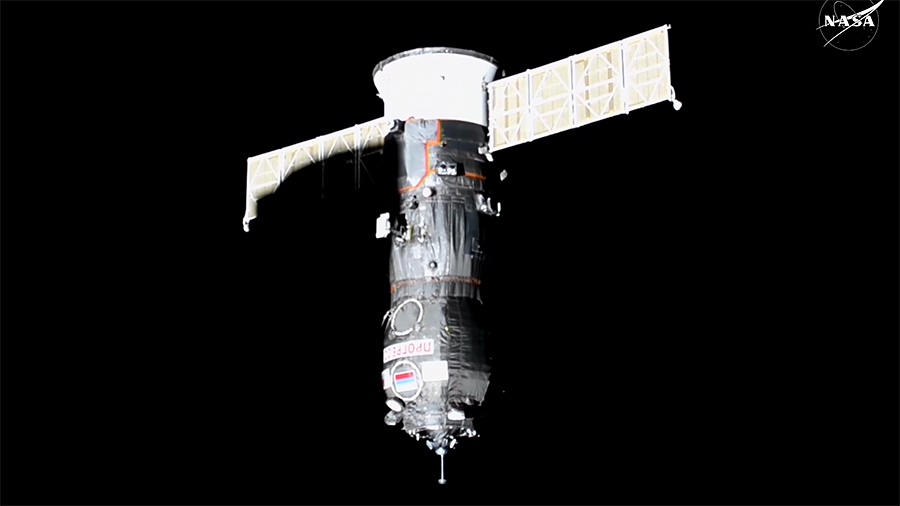WASHINGTON — Hatches between a Russian module and the rest of the International Space Station were closed hours after a Progress cargo spacecraft docking Nov. 23 when the station’s crew reported an “unexpected odor” from the spacecraft.
The Progress MS-29 spacecraft docked with the Poisk module at 9:31 a.m. Eastern, a little more than two days after its launch on a Soyuz-2 rocket from the Baikonur Cosmodrome. The spacecraft, designated Progress 90 by NASA, was carrying about 2,500 kilograms of cargo, such as supplies, water and propellant, for the station.
However, the station’s crew reported in communications with ground controllers several hours later that, when cosmonauts opened the hatch to the Progress, they noted a strong smell and droplets of some kind of fluid, not identified in the discussions. Controllers activated a filtration system to remove any contaminants and the crew closed the hatch to the Poisk module.
NASA, in a statement posted on social media Nov. 24, confirmed that cosmonauts “noticed an unexpected odor and observed small droplets, prompting the crew to close the Poisk hatch to the rest of the Russian segment.” The agency added that controllers concluded that the station’s air quality was at “normal levels” by the time of its statement.
The statement provided no information on what the droplets could be and how they got there. As of the time NASA posted the statement, the crew was working to reopen the hatch to the Progress, with other station activities unaffected. Roscosmos has not publicly commented on the incident on its Telegram social media account.
The incident is the latest in a series of issues involving Russian spacecraft at the station. Previous issues included coolant leaks in December 2022 on the Soyuz MS-22 spacecraft while docked to the station and a Progress MS-21 cargo spacecraft in February 2023. A radiator on the Nauka module, which Russia added to the station in 2021, also suffered a leak in October 2023.
The Soyuz leak prompted the Russian space agency Roscosmos to send up an uncrewed Soyuz to the ISS to replace Soyuz MS-22 out of concerns the cooling system might fail during reentry. That extended the stays of two Russian cosmonauts and NASA astronaut Frank Rubio from six months to one year.
Russian officials blamed the Soyuz and Progress coolant leaks on micrometeoroid or orbital debris impacts, an explanation treated skeptically by many in the space community but one that NASA, at least publicly, accepted.
“The NASA team has also looked at it, independent of the Russian team, and we also cannot find anything, based on the information we’ve been given by our Russian colleagues, of anything other than some type of external force or debris or something else like that,” Joel Montalbano, at the time NASA ISS program manager, said at a July 2023 briefing.
